Peugeot Partner vs VW ID. Buzz Bus – Which car suits you better?
Both models have their strengths – but which one suits you more?
Compare performance, efficiency, price and space directly: Peugeot Partner or VW ID. Buzz Bus?
Costs and Efficiency:
Price and efficiency are often the first things buyers look at. Here it becomes clear which model has the long-term edge – whether at the pump, the plug, or in purchase price.
Peugeot Partner has a clearly advantage in terms of price – it starts at 22400 £, while the VW ID. Buzz Bus costs 42900 £. That’s a price difference of around 20466 £.
In terms of energy consumption, the advantage goes to the Peugeot Partner: with 17.40 kWh per 100 km, it’s slight more efficient than the VW ID. Buzz Bus with 19 kWh. That’s a difference of about 1.60 kWh.
As for range, the VW ID. Buzz Bus performs noticeable better – achieving up to 485 km, about 131 km more than the Peugeot Partner.
Engine and Performance:
Power, torque and acceleration say a lot about how a car feels on the road. This is where you see which model delivers more driving dynamics.
When it comes to engine power, the VW ID. Buzz Bus has a convincingly edge – offering 340 HP compared to 136 HP. That’s roughly 204 HP more horsepower.
In acceleration from 0 to 100 km/h, the VW ID. Buzz Bus is decisively quicker – completing the sprint in 6.10 s, while the Peugeot Partner takes 11.20 s. That’s about 5.10 s faster.
In terms of top speed, the Peugeot Partner performs slightly better – reaching 183 km/h, while the VW ID. Buzz Bus tops out at 160 km/h. The difference is around 23 km/h.
There’s also a difference in torque: VW ID. Buzz Bus pulls convincingly stronger with 679 Nm compared to 300 Nm. That’s about 379 Nm difference.
Space and Everyday Use:
Cabin size, boot volume and payload all play a role in everyday practicality. Here, comfort and flexibility make the difference.
Both vehicles offer seating for 5 people.
In curb weight, Peugeot Partner is convincingly lighter – 1329 kg compared to 2400 kg. The difference is around 1071 kg.
In terms of boot space, the Peugeot Partner offers noticeable more room – 1800 L compared to 1340 L. That’s a difference of about 460 L.
In maximum load capacity, the Peugeot Partner performs clearly better – up to 4000 L, which is about 1795 L more than the VW ID. Buzz Bus.
When it comes to payload, Peugeot Partner clearly perceptible takes the win – 991 kg compared to 600 kg. That’s a difference of about 391 kg.
Who comes out on top?
Overall, the Peugeot Partner shows itself to be has a very small edge and secures the title of DriveDuel Champion.
It convinces with the more balanced overall package and proves to be the more versatile choice for everyday use.
Peugeot Partner
Peugeot Partner
The Peugeot Partner is a versatile and practical vehicle, ideal for both urban and rural settings. Its spacious interior and adaptable seating make it a popular choice for families and businesses alike. With a focus on reliability and efficiency, the Partner is well-suited to meet the demands of everyday transport.
detailsVW ID. Buzz Bus
The VW ID. Buzz Bus marks a bold step into the future with its blend of retro charm and innovative electric technology. This all-electric vehicle offers an impressive range, making it ideal for both urban driving and longer excursions. Its spacious interior and advanced connectivity features ensure a comfortable and connected journey for all passengers.
details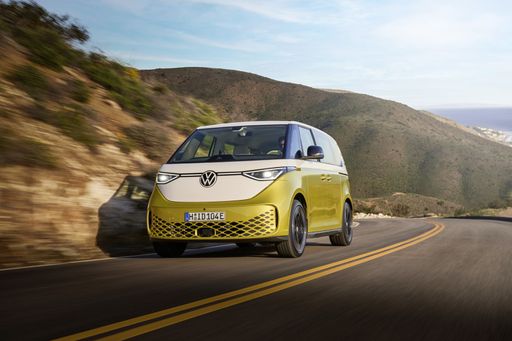 @ Volkswagen
@ Volkswagen
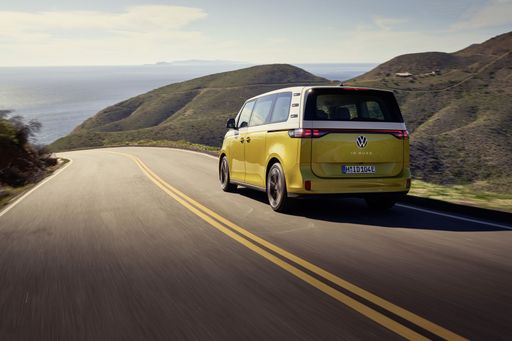 @ Volkswagen
@ Volkswagen
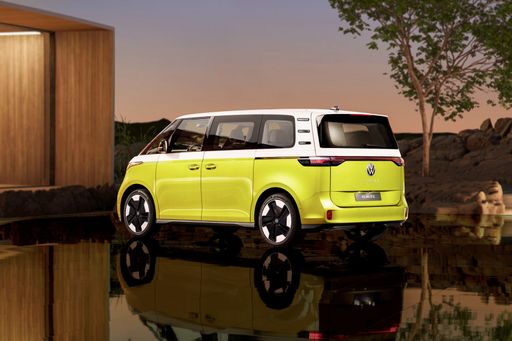 @ Volkswagen
@ Volkswagen
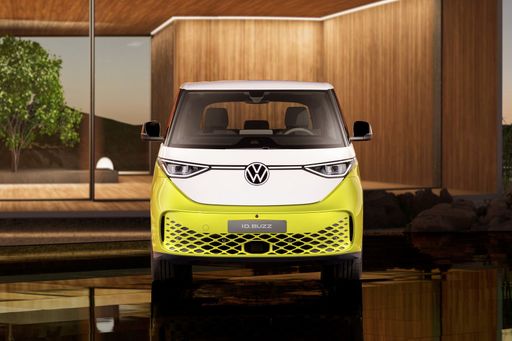 @ Volkswagen
@ Volkswagen
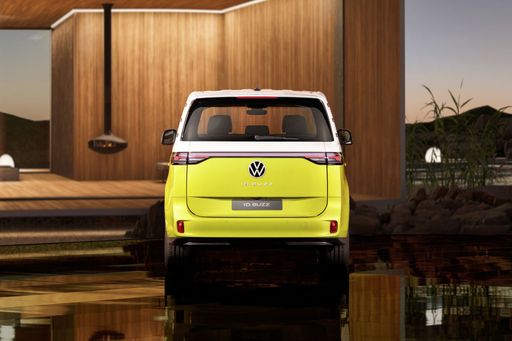 @ Volkswagen
@ Volkswagen
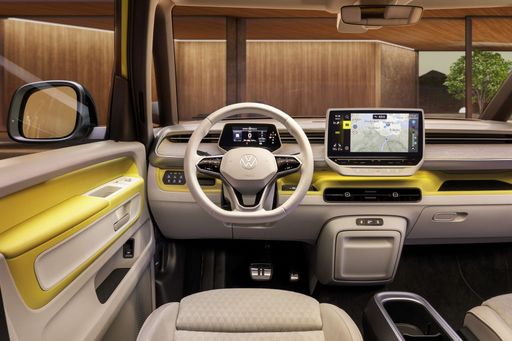 @ Volkswagen
@ Volkswagen
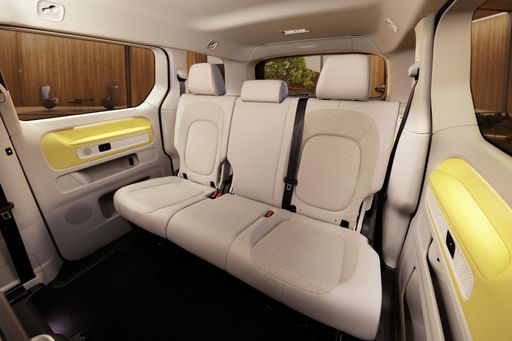 @ Volkswagen
@ Volkswagen
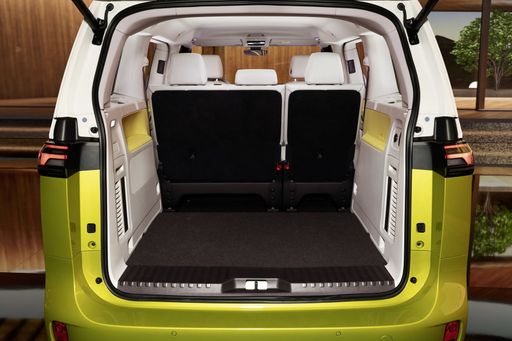 @ Volkswagen
@ Volkswagen
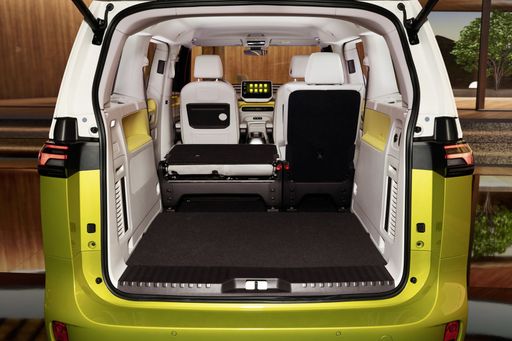 @ Volkswagen
@ Volkswagen

|
|
|
|
|
Costs and Consumption |
|
|---|---|
|
Price
22400 - 33800 £
|
Price
42900 - 64200 £
|
|
Consumption L/100km
5.2 - 6.3 L
|
Consumption L/100km
-
|
|
Consumption kWh/100km
17.40 kWh
|
Consumption kWh/100km
19 - 20.6 kWh
|
|
Electric Range
354 km
|
Electric Range
329 - 485 km
|
|
Battery Capacity
-
|
Battery Capacity
59 - 86 kWh
|
|
co2
0 - 143 g/km
|
co2
0 g/km
|
|
Fuel tank capacity
53 - 61 L
|
Fuel tank capacity
-
|
Dimensions and Body |
|
|---|---|
|
Body Type
Cargo Van
|
Body Type
Bus
|
|
Seats
2 - 5
|
Seats
5
|
|
Doors
4 - 5
|
Doors
5
|
|
Curb weight
1329 - 1813 kg
|
Curb weight
2400 - 2780 kg
|
|
Trunk capacity
1800 L
|
Trunk capacity
1121 - 1340 L
|
|
Length
4403 - 4753 mm
|
Length
4712 - 4962 mm
|
|
Width
1848 mm
|
Width
1985 mm
|
|
Height
1796 - 1812 mm
|
Height
1924 - 1927 mm
|
|
Max trunk capacity
3300 - 4000 L
|
Max trunk capacity
2205 L
|
|
Payload
611 - 991 kg
|
Payload
462 - 600 kg
|
Engine and Performance |
|
|---|---|
|
Engine Type
Electric, Diesel, Petrol
|
Engine Type
Electric
|
|
Transmission
Automatic, Manuel
|
Transmission
Automatic
|
|
Transmission Detail
Reduction Gearbox, Manual Gearbox, Automatic Gearbox
|
Transmission Detail
-
|
|
Drive Type
Front-Wheel Drive
|
Drive Type
Rear-Wheel Drive, All-Wheel Drive
|
|
Power HP
102 - 136 HP
|
Power HP
170 - 340 HP
|
|
Acceleration 0-100km/h
11.20 s
|
Acceleration 0-100km/h
6.1 - 10.7 s
|
|
Max Speed
135 - 183 km/h
|
Max Speed
145 - 160 km/h
|
|
Torque
205 - 300 Nm
|
Torque
310 - 679 Nm
|
|
Number of Cylinders
3 - 4
|
Number of Cylinders
-
|
|
Power kW
75 - 100 kW
|
Power kW
125 - 250 kW
|
|
Engine capacity
1199 - 1499 cm3
|
Engine capacity
-
|
General |
|
|---|---|
|
Model Year
2024 - 2025
|
Model Year
2024
|
|
CO2 Efficiency Class
A, E
|
CO2 Efficiency Class
A
|
|
Brand
Peugeot
|
Brand
VW
|
Is the Peugeot Partner offered with different drivetrains?
Available configurations include Front-Wheel Drive.
The prices and data displayed are estimates based on German list prices and may vary by country. This information is not legally binding.
